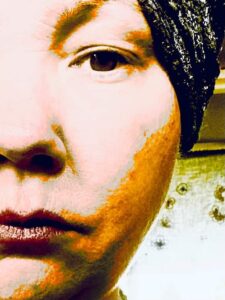Farsi into German and English
حشرات را شکنجه نکنید
کتاب ها
کتاب های مفلوج راز هايشان را برای همه فاش می کنند
پله ها
پله های روسپی به هر پوتينی پا می دهند
تصور اين که
باد پنجره ها را باز خواهد کرد
و بوی بهار در اتاق خواهد پيچيد
تصور اين که
دختری که دوستش داری عاشق شد
درست در لحظه ای که
مورچه های سرباز چشم هايت را برای ملکه می برند
تصور اين که
ساعت دوباره زنگ خواهد زد
زندگی ادامه خواهد داشت
نگرانم می کند
نگران چون دزدی که پايش به ميز می خورد
ناشيانه
نگران چون آخرين وسوسه های ابليسی غمگين
بر بستر پيامبری لجوج
قرار نبود مرده ها حرف بزنند
اما از من به شما نصيحت
هرگز حشرات را شکنجه نکنيد.
Foltert nicht das Ungeziefer
Die Bücher
Die Bücher des Krüppels lüften allen ihre Geheimnisse.
Die Treppe
Die Treppe der Hure ist für alle weit geöffnet.
Die Vorstellung, dass
Der Wind das Fenster öffnen und
Der Frühlingsluft in den Raum strömen lassen wird.
Die Vorstellung, dass
Deine Schönheit zur Geliebten wird
Genau in dem Moment, in dem
Die Soldatenameisen deine Augen der Königin als Opfergabe bringen.
Die Vorstellung, dass
Die Uhr zweimal schlagen wird
Das Leben aber weitergeht
Macht mich unruhig,
Unruhig wie ein Dieb, der am Spieltisch betrügt,
Unruhig wie die letzten Versuchungen eines schwermütigen Satans
Auf dem Bett eines hartnäckigen Propheten.
Die Toten dürfen nicht sprechen
Ich rate euch jedoch
„Foltert nicht das Ungeziefer“.
Translated by Eve Mason
Foltert ihr nicht das ungeziefer (Ariel Miller Salazar)
bücher
die bücher des krüppels geben allen ihr heimliches preis
treppe
die treppe der hure lassen jeden schuh vorbei
die idee dass
der wind das fenster öffnen wird
so dass der frühlingsduft ins zimme schleichte
die idee dass
deine schönheit sich verlieben wird
in genau jenem augenblick
in dem die soldatenameisen deine augen zur königin schleppen
die idee dass
der wecker zweimal klingeln wird
das leben aber weitergehn
macht mir sorgen
wie ein dieb der bei tisch alle betrügt (?)
wie die letzten versuchungen eines traurigen Satans
die auf eines sturen propheten bett liegen
die toten dürfen nicht mehr sprechen
ich aber rate euch:
„foltert ihr nie das ungeziefer“
Translated by Ariel Miller Salazar
Never Torture Insects
Books
The cripple’s books betray their secrets to everyone
Stairs
The whore’s stairs are trodden by every boot
To think
that the wind will push open a window
and the smell of spring will curl into a room
To think
that your beauty will turn to love
Just at the moment
that soldier ants carry your eyes to the queen
to think that
the clock will chime twice
that life will carry on
makes me anxious
anxious like a cheating card sharp
anxious like the last of grieving Satan’s temptations
on the bed of a stubborn apostle
It’s not certain that the dead will speak
but I’ll give you a piece of advice:
“ Never torture insects.”
Translated by Mike Baynham










